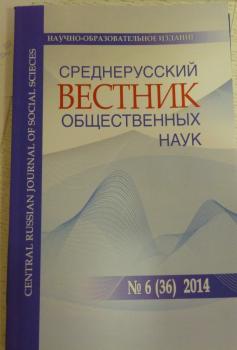The article describes the long-term trends in the development of international relations in the Arctic, the strategic importance of the region in modern international relations is proved. By analyzing the foreign policy strategies of the polar states the possible directions of international cooperation are formulated, threats to the development of constructive cooperation in the region are identified. The trends and key integration structures of military and political cooperation in the region are described, for the study of development prospects of the situation the concept of «security dilemma» is applied. The author describes the conditions necessary to reduce the tension in the region and the establishment of a non-confrontational model of world political development in the Arctic. In particular, the recognition of insolvency of isolation policy, as well as the rejection of the fragmentation of international security environment in the Arctic will allow to overcome the destructive tendencies of development and increase the possibility to maintain a mutually acceptable dialogue.
international cooperation, security dilemma, the Arctic region, international security in the Arctic
1. Voronov K.V. Arkticheskie gorizonty strategii Rossii: sovremennaya dinamika. Mirovaya ekonomika i mezhdunarodnye otnosheniya. - 2010.- № 9. - S.54-65
2. Lukin Yu.F. Rossiyskaya Arktika v izmenyayushchemsya mire: monografiya. - Arkhangel´sk: IPTs SAFU, 2013. - 281 s.
3. Pilyasov A.N., Kotov A.V. Potentsial rossiyskoy Arktiki dlya mezhdunarodnogo sotrudnichestva: doklad № 17/2015. - M.: Spetskniga, 2015. - 120 s.
4. Timofeev I.N. Dilemma bezopasnosti: risk vooruzhennogo konflikta mezhdu velikimi derzhavami. Polis. - 2009. - №4. - S.8-34
5. Arctic 2015 and Beyond. A Strategy for U.S. Leadership in the High North.- URL: http://www.cnas.org/sites/default/files/publications-pdf/CNAS_ArcticHighNorth_policybrief_RosenbergTitleyWiker.pdf (data obrashcheniya: 12.01.2016)
6. Booth K., Wheeler N.J. The Security Dilemma: Fear, Cooperation and Trust in World Politics. NY: Palgrave Macmillan, 2008. - 272 p.





